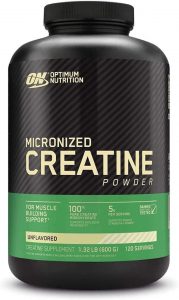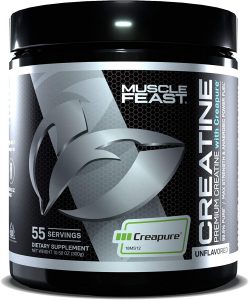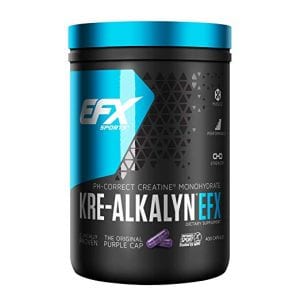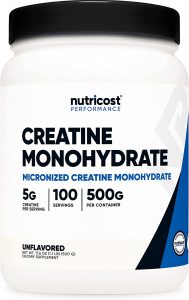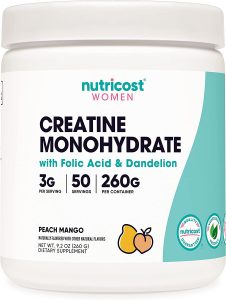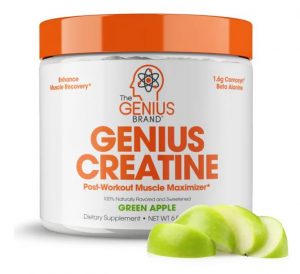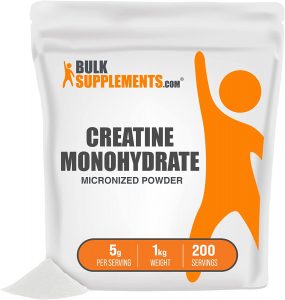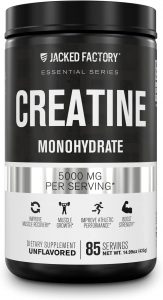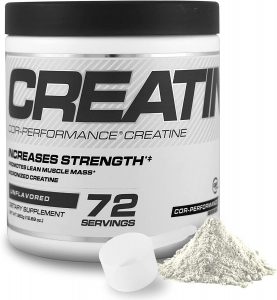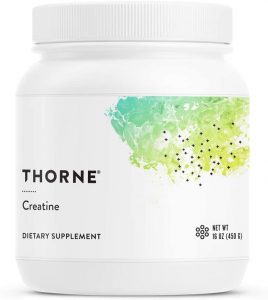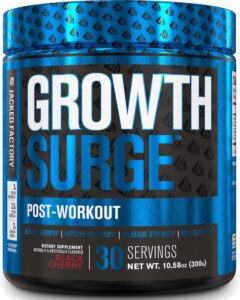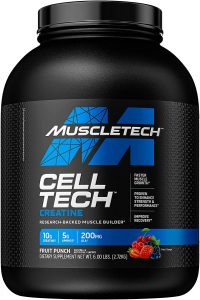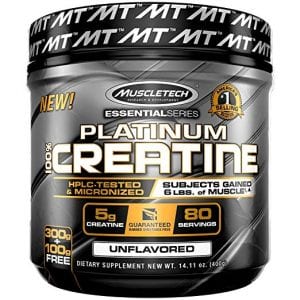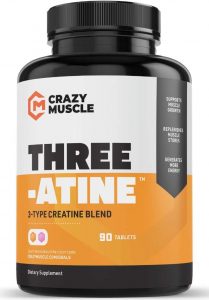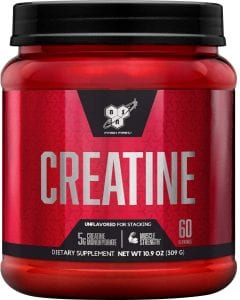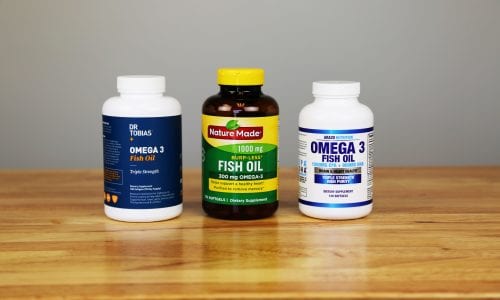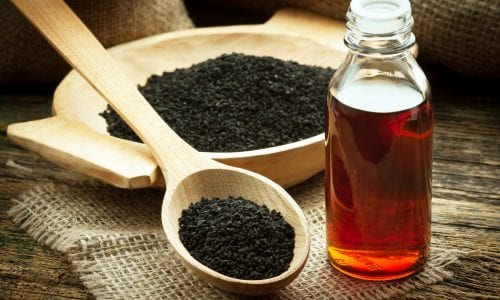The Best Creatine Powder
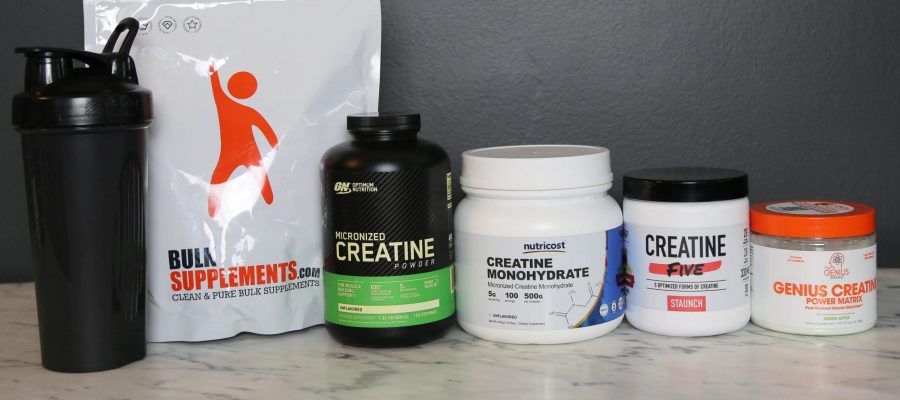
Our Review Process
Don't Waste Your Money is focused on helping you make the best purchasing decision. Our team of experts spends hundreds of hours analyzing, testing, and researching products so you don't have to. Learn more.
Our Picks For The Top Creatine Powders
- 1. Optimum Nutrition Muscle Building Creatine Monohydrate
- 2. Muscle Feast Brain Health Support Creatine Powder
- 3. EFX Sports Kre-Alkalyn Original Monohydrate Creatine Capsules
- 4. Nutricost Unflavored Muscle Growth Creatine Powder
- 5. Nutricost Vegetarian FDA-Approved Creatine Powder
- 6. The Genius Brand Sweetened Post Workout Creatine Powder
- 7. Bulk Supplements Unflavored Creatine Monohydrate Powder
- 8. Jacked Factory Vegetarian Energy Boosting Creatine Powder
- 9. Cellucor Energy Management Micronized Formula Creatine Powder
- 10. Thorne Research Supplemental Unflavored Creatine Powder
- 11. Jacked Factory Increase Strength Abti-Fatigue Creatine Powder
- 12. MuscleTech CellTech Energy-Boosting Creatine Powder Micronized
- 13. MuscleTech Platinum Keto-Friendly Creatine Monohydrate Micronized
- 14. Crazy Muscle Fast-Acting Creatine Monohydrate Supplement
- 15. Six Star Pro Nutrition Creatine X3 Powder
- 16. BSN Dietary Supplement Creatine Monohydrate Powder
This micronized creatine monohydrate powder is a top choice because of its pure qualities. It is completely flavorless, so you can add it to almost any drink without changing the flavor. You also won't find any fillers in this creatine, which makes it suitable for every dietary restriction.
Versatile CreatineYou can add this micronized creatine monohydrate powder to any drink, since it's flavorless.
With a 99.9% pure formula, this creatine powder is hard to beat. It's designed to increase strength, brain function and endurance. It's also loaded with antioxidants, which are responsible for protecting the body from free radicals.
Increases StrengthUse this creatine powder when following a vegan, keto or gluten-free diet.
This creatine powder is an absolute must if you have a sensitive stomach. This supplement has been pH balanced down to a level 12. That allows consumers to avoid the bloated feeling that often accompanies creatine supplements. The buffering agents also help to soften those effects on the GI system.
No Bloating HereThis special creatine powder is a top pick for sensitive stomachs, since it won't make you feel bloated.
This large container of creatine provides a full 3 1/2 months supply. Each serving offers 5 grams of creatine to help increase your strength and endurance when working out. You'll be happy to learn the formula is non-GMO and free of gluten.
Budget-Friendly PickWith this creatine, you'll be able to enjoy all the benefits of the supplement without the big price tag.
Buying Guide
Building muscle takes time and effort. Just keeping your energy going throughout a long workout is challenging enough, but the weeks and months it takes to build and strengthen muscles can lead to an excruciating wait.
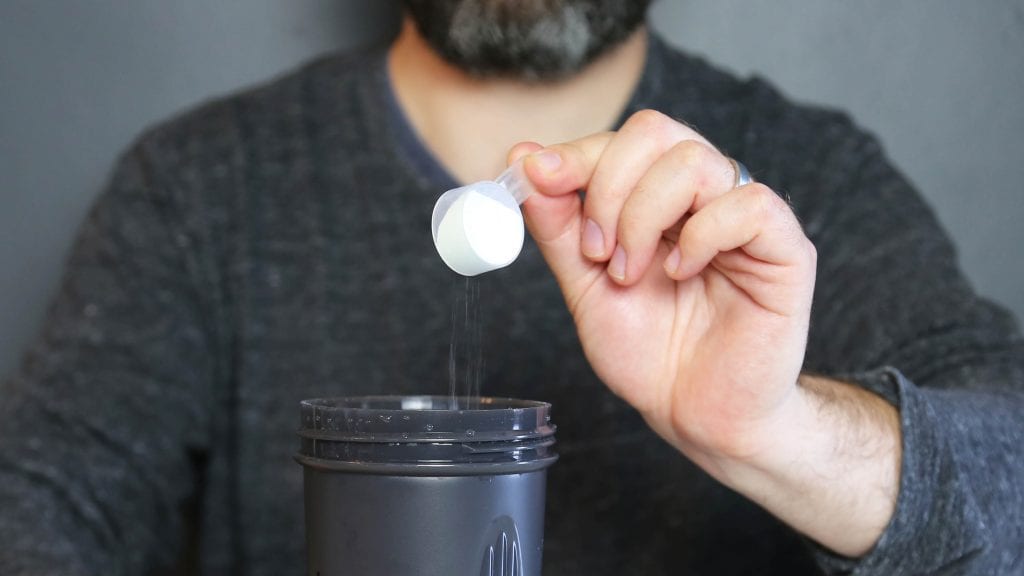
Professional athletes and bodybuilders have an edge over casual exercisers, though. It’s all in what they put into their bodies. In addition to studying what foods they need to eat to maximize results, they also use powders and supplements to boost performance. With the right combination, they can get better results faster, or at the very least they can gain the energy they need to make it through a strenuous workout.
One supplement popular with fitness enthusiasts is creatine. Creatine comes in powder and pill form and, once ingested, is converted by the body into creatine phosphate. Creatine phosphate, in turn, produces a substance that produces the energy necessary for muscle contractions.
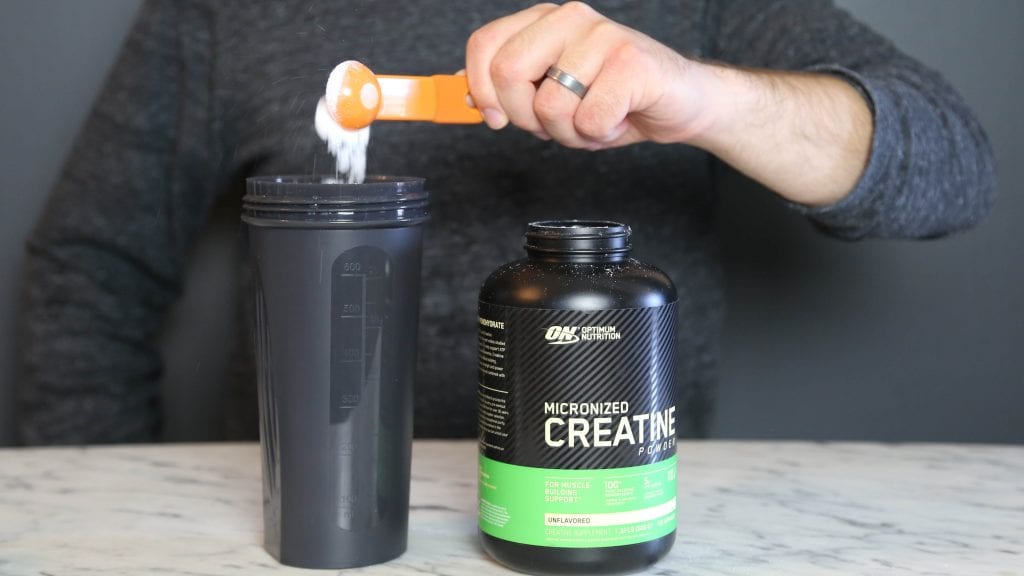
Benefits of Creatine
In addition to increasing energy, creatine accelerates recovery in your muscles and even increases muscle mass. How does creatine do these things? It allows your body to endure through longer periods of extreme exercise which helps your muscle grow. It also increases cell signaling that helps with muscle growth and more importantly muscle recovery. Finally, creatine elevates water levels in the cells, which not only helps with the function but also plumps the muscle up.
Taking creatine is shown to significantly reduce the breakdown of proteins that comprise our muscles. It encourages the growth of the muscle by lowering myostatin levels, the protein that can prevent muscle growth. Additional studies have found that the increase of phosphocreatine in the brain enhances function and can prevent neurological malfunctions.
Besides Creatine can have other benefits, too, says Dr. Niket Sonpal, a doctor based in New York City.
“Sleep deprivation has a negative effect on mental performance and mood. This can be caused by a drop in creatine levels in the brain,” he says. “Studies suggest that taking a creatine supplement can help to offset the decline in mental performance that normally happens when you’re short on sleep.”
Importantly, Dr. Sonpal advises talking to your doctor before you begin taking supplements of any kind, including creatine. And keep in mind that if something sounds too good to be true, it likely is.
Before Taking Creatine
“Always check with your physician before adding any supplement to your diet. Do not expect miracles from any product. A sensible, healthy diet and regular exercise program are the real keys to achieving and maintaining weight loss and overall health,” says Dr. Sonpal.
Before you add creatine to your daily fitness regimen, though, it’s important to pay close attention to some warnings. It can cause stomach upset in some people, including nausea, diarrhea, and cramping. Creatine prompts your muscles to gather water from the rest of your body, so you’ll need to drink extra water to prevent dehydration during your workout. Lastly, you may find the numbers on the scale shoot upward slightly while you’re taking creatine. This is due to your muscles holding water, so don’t be alarmed.
If you opt for a supplement, you probably will find you can get the best deal by going with a powder. Often creatine is sold in containers that will last a while, so you can keep your expense at a minimum. If you choose a powder, consider how you’ll be consuming it. If you’re mixing it with your coffee or favorite cold beverage, you may want to stick with an unflavored version. But you can choose from delicious flavors like sour apple, then mix with water or a protein shake to make your own tasty beverage out of it.
Our Expert Consultant

Gastroenterologist and adjunct assistant professor at Touro College of Osteopathic Medicine
Dr. Niket Sonpal is an adjunct assistant professor at Touro College of Osteopathic Medicine and clinical instructor at Kingsbrook Jewish Medical Center, Brooklyn, who specializes in gastroenterology.
He is a graduate of the Medical University of Silesia-Hope Medical Institute in Poland. After completing his residency in internal medicine at Lenox Hill Hospital, he was selected to be the 2013‐2014 Chief Resident at Lenox Hill Hospital–Northshore LIJ Health System. Dr. Sonpal completed his fellowship in gastroenterology and hepatology at Lenox Hill Hospital and continues his work in the field of medical-student and resident-test preparation. He now serves as the associate program director for the Internal Medicine Residency Program at Brookdale University medical center.
He is also the co‐author of several medical test prep books and serves as the chief operating officer for Medquest Test Prep and director of medical education for Picmonic Test Prep.
What to Look For
- Supplements aren’t the only source of creatine. You can add it to your diet by eating protein-rich foods like fish and meat.
- The long-term side effects of creatine aren’t 100% clear, so it’s best to limit your intake to short-term use. If you’re trying to bulk up or boost muscle performance during football season, consider pulling back in the offseason and maintaining your muscle growth without the use of supplements.
- For mixing powders in a liquid, you’ll want one that dissolves quickly. A powder that is micronized, which means it’s ground down to the finest of particles, works best.
- Examine the amount of creatine you’re getting per serving. You’ll find many creatine powders provide 5 grams, which should be enough to get the desired results.
- If you’re concerned about chemicals, look for a powder that doesn’t have artificial flavorings or sweeteners.
- To ensure you’re getting exactly what the label says, buy a powder that was manufactured in a facility that’s GMP compliant. GMP stands for “Good Manufacturing Practice,” a set of standards applied to manufacturers.
- When purchasing a powder, you’ll need a scoop to dispense it. If you don’t already have one on hand, make sure your chosen supplement comes with a scoop so you can purchase one separately if necessary.
- Powders come in various shapes and sizes. Pay close attention to the serving size and grams of creatine to make sure you’re getting the biggest bang for your buck.
- Creatine powder is most useful for explosive exercise that requires quite a bit of muscle energy at once, including boxing and powerlifting.
- If purity is important to you, check to ensure the manufacturer has verified its claims somehow, whether it’s through third-party testing or certification from a respected authority.
- One thing that can be confusing as you start thinking about taking creatine is that there are multiple varieties available. Creatine monohydrate was the first type used as a supplement, but since that time, several others have emerged. Creatine monohydrate is tested and proven, but some of these others have their own benefits, while others haven’t been proven to be useful at all. Conduct thorough research on each type before buying to make sure you’ll get the results you’re expecting.
- Another ingredient you may find advertised in a creatine supplement is Beta Alanine-SR, which produces carnosine, a protein building block that cuts down on lactic acid accumulation when you exercise. This can help boost your performance during workouts and sports.
- If you have food sensitivities, look for a product that promises to be free of those items. You can find creatine powders free of nuts, eggs, fish, soy, gluten and more. If you have serious health repercussions from ingesting those foods, research thoroughly to make sure the claims have been substantiated by a trusted third party.
- Athletes often must go through testing to make sure they’re clear of any performance-enhancing products. Creatine is typically safe for these tests, but one type of creatine known to be cleared in these tests is Creapure. In fact, the name is often seen on lists of substances that will reduce an athlete’s risk of accidentally doping.
- If you’re vegan, you’ll want to be especially vigilant when shopping for creatine. Not all creatine is free of animal products, so you’ll have to search for a powder that advertises that it’s vegan.
- Your creatine product should have creatine listed as the very first ingredient. You should also be aware that some creatine powders can contain sugar or artificial sweeteners and caffeine, among other ingredients.
More to Explore
Building muscle starts with your diet. If you want to build muscle, you need to consume more protein than your body is breaking down during your workouts. How much you need to increase depends on your weight, but as a benchmark, a 150-pound person should consume between 75 and 120 grams of protein per day. Compare that to around 52 grams of protein per day for that same person who doesn’t want to build muscle. To gain muscle, you’ll need to work out your major muscle groups twice a week, but there hasn’t been evidence showing that working out three or more days a week is better than just twice. Some choose to work out more than twice a week but focus on different muscle groups on gym days.
MORE: The Best Protein Powder

